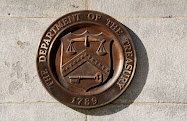A potential end is in sight to the war between Israel and
Hamas that has claimed tens of thousands of lives and upended international
supply chains, although last minute wranglings over the terms of a ceasefire
are ongoing.
A ceasefire in the conflict that sparked Houthi attacks on
shipping in the Southern Red Sea and Gulf of Aden will not immediately remove
the risk to ships within the Houthis’ range of attack from the coast of Yemen.
Speaking to Seatrade Maritime News on January 14, Daniel
Muller, Intelligence Analyst for the Middle East at Ambrey, said that the
Houthi attacks on shipping are closely linked to the war in Gaza as a means of
targeting assets linked to Israel and its allies. However, the point at which
Houthi attacks will end is unclear, and there is a risk of a return to civil
war in Yemen, he warned.
“It is assessed highly unlikely the Israel Defence Forces
would withdraw from the Gaza Strip straight away. Therefore, it is assessed
unlikely that a ceasefire would immediately result in the Houthi ceasing
attacks on merchant shipping. Ambrey assesses the Houthi actions to be linked
to Israeli military forces operating within the Strip,” said Muller.
While the details of the ceasefire agreement have not been
officially announced, reports indicate that it will bring about a three-stage
process, beginning in the first stage with a full and complete ceasefire for
six weeks, the release of dozens of hostages, and the withdrawal of Israeli
forces from populated areas of Gaza.
The second stage would see remaining Israeli hostages
released along with the release of Palestinian prisoners held by Israel, and a
complete withdrawal of Israeli troops from Gaza.
The third and final stage is understood to be the
reconstruction of Gaza, which has been devastated by Israeli strikes and
invasion since October 2023.
“Ambrey assesses the Houthi actions to be linked to Israeli
military forces operating within the Strip,” said Muller. If that assessment
holds to be true, the Houthi threat to shipping would remain until the end of
stage two of the peace process. The risk assessment for ships is complicated by
a recent lull in attacks, due in part to reduced Houthi capacity and in part to
a lack of viable targets as ships continue to avoid the area within Houthi
targeting range. A long break in attacks will need to be assessed against
viable opportunities to attack targets considered valid by the Houthis.
Whether the ceasefire progresses or not, the political
situation in Yemen will remain of significance to the shipping industry, as
developments there could lead the Houthis to target a wider range of vessels.
“A resurgence of the Yemeni Civil War remains possible,
which could lead to a change in intent, targeting coalition shipping instead of
Israel-affiliated vessels.
The US is reportedly attempting to garner the intelligence
support of Saudi Arabia and the Internationally Recognised Government of Yemen
to increase the effectiveness of US airstrikes against the Houthi.
“The Houthi have repeatedly warned Saudi Arabia not to
intervene against the Houthi’s attacks on Israel. Any active support of US
airstrikes in northwest Yemen may be construed as a direct attack against the
Houthi and a revival of the Yemeni Civil War. Renewed clashes in Taiz in
December 2024 did not lead to an escalation of the internal conflict yet
indicated the fragility of the unofficial ceasefire,” said Muller.
Muller said a return to ships transiting the Bab el-Mandeb
Strait would be gradual, a point Peter Sand, Chief Analyst at Xeneta, agreed
with.
“Xeneta does not expect a full return to Red Sea transits
immediately. But the ceasefire may mean that more shipowners will look at the
risk differently and therefore perhaps bring ships back.
At first those containerships with a capacity below 10,000
teu, lastly the very large 18,000-24,000 teu containerships,” Sand noted in a
Linkedin post.
Sand said a return to the Red Sea will bring increased
scrapping in the containership segment, as the market loses the roughly 1.8 million
teu of capacity demand sustained by rerouting ships around the Cape of Good
Hope. Plans will be in place for the return to the Red Sea, he said, a position
supported by the new container alliances due to come online next month, which
have published plans for both Suez Canal and Cape of Good Hope rotations.
Freight rates across the container, tanker and dry bulk
markets are expected to fall significantly when the Red Sea reopens.






